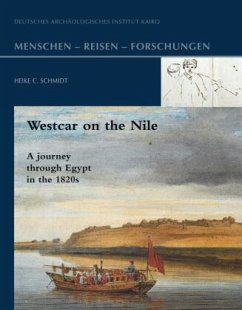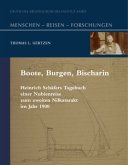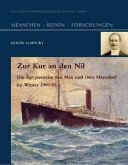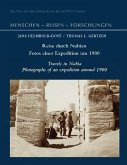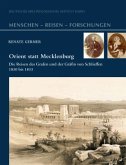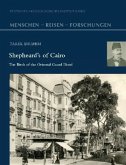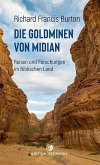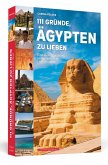On November 6, 1823, four Englishmen disembarked in the harbour of Alexandria. In the succeeding ten months, they traveled up the Nile as far as the Second Cataract and, in the course of their travels, witnessed the turmoils of a revolution against Mohamed Ali Pasha, the viceroy of Egypt. In this volume, Henry Westcar's journal, which was written during this journey, is edited and annotated for the first time in its entirety. Additionally, the book offers a profound overview of the reign of Mohamed Ali Pasha and particularly the treatment of ancient monuments. The topic of the famous "Westcar Papyrus", which owes its name to the author of the journal, is discussed in an excursus.
On this series:
"Menschen - Reisen - Forschungen. Wissenschaftsgeschichte aus Ägypten" is a new series published by the German Archaeological Institute in Cairo. It comprises biographical works about individual researchers and travellers in Egypt, especially in the nineteenth and early twentieth centuries. The extensive material from the archives of the Institute in Cairo is thereby made available to a growing readership with an interest in the scientific history of oriental countries. Each volume in this series is scientifically sound, extensively illustrated and written in an accessible style.
Volumes on the Egyptologists Heinrich Brugsch (1827-1894), Heinrich Schäfer (1868-1957), and Ludwig Keimer (1892-1957), the architect and geodesist Georg Gustav Erbkam (1811-1876), the Africanist and botanist Georg Schweinfurth (1836-1925), the ophthalmologist, orientalist and Arabist Max Meyerhof (1874-1945) and on the history of the Deutsches Haus in Thebes (1904-1966) are in preparation.
Hinweis: Dieser Artikel kann nur an eine deutsche Lieferadresse ausgeliefert werden.
On this series:
"Menschen - Reisen - Forschungen. Wissenschaftsgeschichte aus Ägypten" is a new series published by the German Archaeological Institute in Cairo. It comprises biographical works about individual researchers and travellers in Egypt, especially in the nineteenth and early twentieth centuries. The extensive material from the archives of the Institute in Cairo is thereby made available to a growing readership with an interest in the scientific history of oriental countries. Each volume in this series is scientifically sound, extensively illustrated and written in an accessible style.
Volumes on the Egyptologists Heinrich Brugsch (1827-1894), Heinrich Schäfer (1868-1957), and Ludwig Keimer (1892-1957), the architect and geodesist Georg Gustav Erbkam (1811-1876), the Africanist and botanist Georg Schweinfurth (1836-1925), the ophthalmologist, orientalist and Arabist Max Meyerhof (1874-1945) and on the history of the Deutsches Haus in Thebes (1904-1966) are in preparation.
Hinweis: Dieser Artikel kann nur an eine deutsche Lieferadresse ausgeliefert werden.
"The book is definitely well worth reading, at least for Westcar's diary with its commentary. The editor, however, fails to provide more information on Westcar himself before and after his travel on the Nile. Despite the mistakes mercilessly highlighted in this review, the edition of the diary is quite accurate, the commentary is generally informative and most of the notes provide helpful information. On the other hand, the general part on Mehmet 'Ali's reign is disappointing and so too the reconstruction of the "War of the Consuls" period and the discussion of heritage-related issues. To add more to the current knowledge of the period, a thorough discussion of the 1824 uprising would have been welcomed. The set of illustrations is really impressive and enriches the volume."
Von: Daniele Salvoldi
In: Journal of the Society for the Study of Egyptian Antiquities, Jessa 38 (2011-2012), S. 250-258.
Von: Daniele Salvoldi
In: Journal of the Society for the Study of Egyptian Antiquities, Jessa 38 (2011-2012), S. 250-258.

